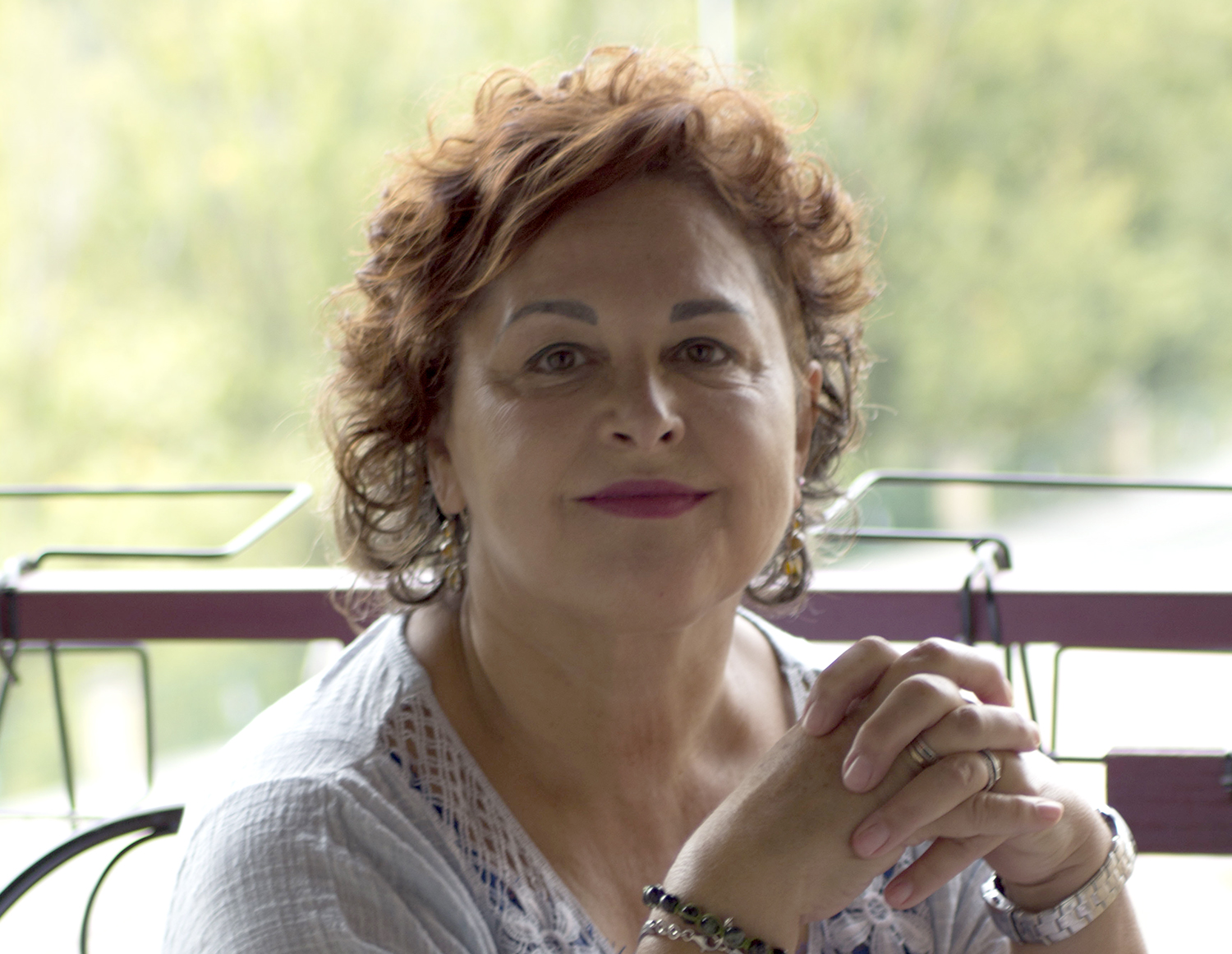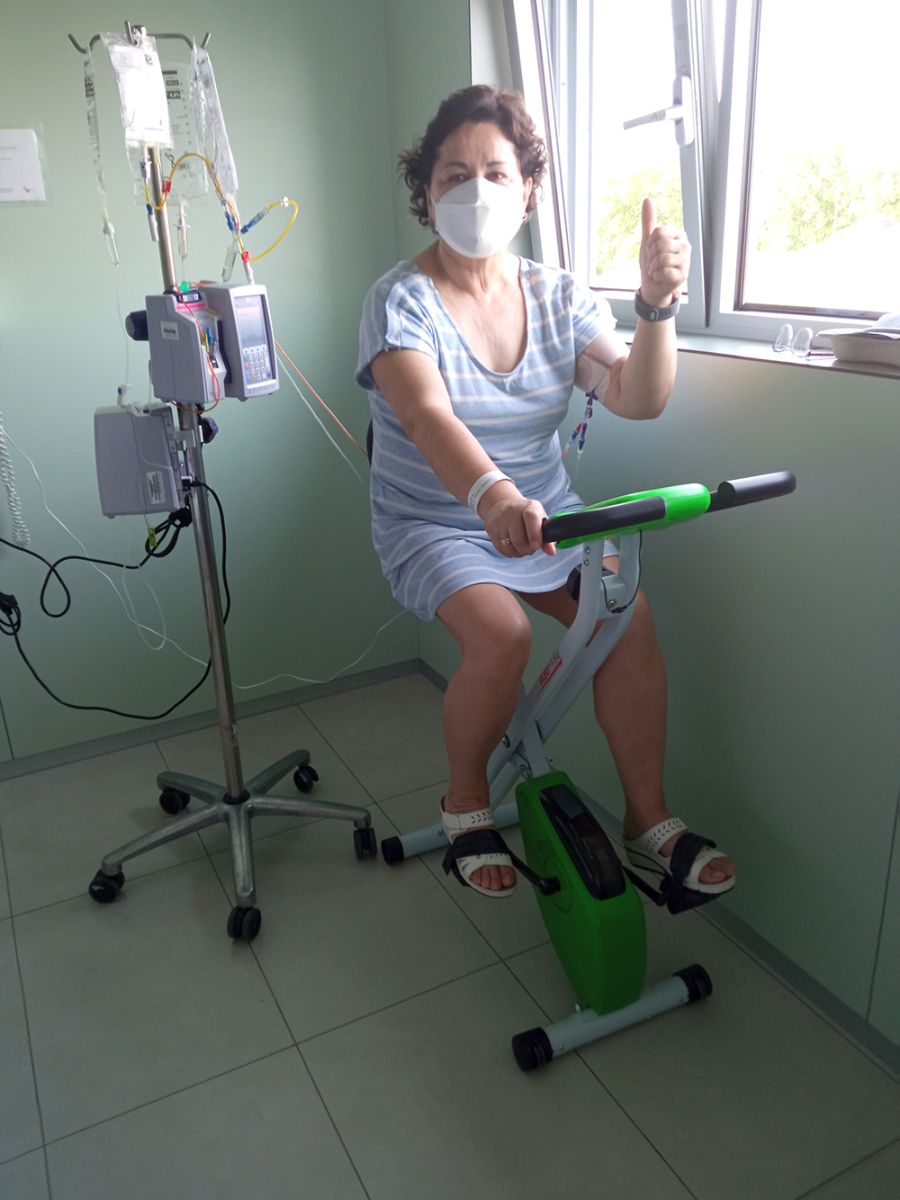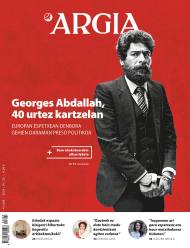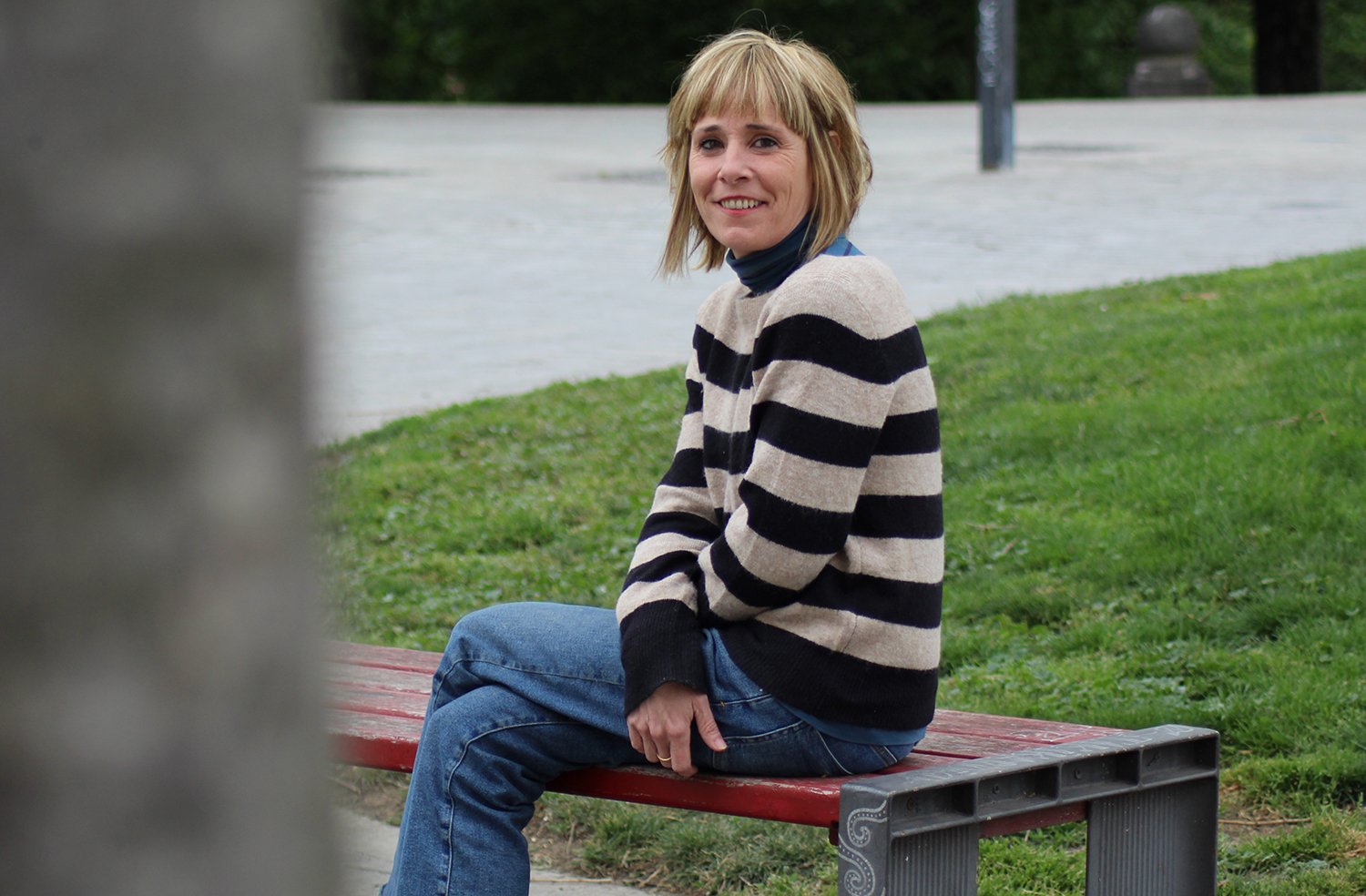"Sometimes it's scary to ask what's coming."
- Olga Garate (Pamplona, 1964) is a young woman who is humble, cheerful and energetic. Passion for bicycle and family is your priority. She is a nursing assistant and, although she likes "very much" work, she has been prevented from definitive work due to chronic cancer. In the interview, in addition to commenting on the cancer process, he will discuss his work in Osasunbidea.

Olga Garate began to feel the “terrible pain” that began eight years ago on the side of his back and extended to his spleen: “They came to the emergency room and told me why I was going in the wind when there was so much urgency. Suddenly, overnight, it was a terrible cancer. The months passed and the pain was increasing until it was "unbearable." The general practitioner was on leave and he was changed to a doctor every day. Finally, they did an ultrasound. "The doctor said: 'In the spleen a few stains have come out, but don't listen.' He asked for the report and went to the emergency room. After insisting on the tests, he was told he had lymphoma and was admitted to a hospital with a reserved prognosis.
Since then, he has been hospitalized for a long time, has been subjected to numerous tests and chemo sessions every day. A year and a half after starting chemo, he started working in the emergency room: "I was working the entire pandemic, I was exhausting." Even though at that time the sick letter was given to those who were at risk, Garate does not know why they did not call it. However, he said nothing, because work was a subterfuge: "Hasier, our son, has a high disability. He's admitted to a center, and since during the pandemic the center was closed for a month, we couldn't see him. Even though we were making video calls, I was covering my head because I was angry. It seemed we were abandoning it. That was the hardest thing, not being able to talk to your child and think about how he would react.
After several years of work, two years ago they went to the medical examination and told him that the cancer had completely disappeared: "I celebrated it with my friends, with my family, with everyone." The next day, while on duty, he felt the same pain as in the past and went to the emergency room. They told him they would be colic. As the pain did not stop, he returned to the emergency room: "I'm very strong, but I was crazy about tears because I couldn't do it anymore. The doctor treated me very well and asked for an analysis. Without an appointment, he addressed the hematologist with the results: "He shook his hands." “It’s impossible, it’s impossible, with these results we’re going late!”
In general, he feels “very well” in hematology, but also very well aware of the attitude of a doctor when he was transferred to the Virgen del Camino Hospital. He arrived at the hospital for emergency tests, but the doctor underestimated Garate's symptoms and questioned the severity of the tests: “It hurt a lot and touched my stomach, although I was complaining, he said the record was absolutely normal. I was crying because I couldn’t endure the pain anymore, I asked them to give me more pain, but the doctor ordered me to withdraw all the medications.” When the results were received, the doctor was distressed and did not worry about his attitude. “He said to me, moving his hands: ‘He was right, he was right. They will tell you.’”
After that, she had a biopsy and was told she had follicular lymphoma. It's a slowly growing lymphoma that has no uncle. “They think it’s been for eight years, but they focused on the rapidly expanding lymphoma, so they didn’t see it.” They did a lot of tests and started with the chemo sessions: “It was very hard. I did seven-day chemo sessions and I didn’t stop vomiting.”
"The doctor said: 'In the spleen a few stains have come out, but don't listen'
Autotransplantation
After a thousand tests, he underwent an autotransplant, as he had the marrow damaged. “The doctors told me that I was born again to celebrate,” he says excited. The doctors are happy with the results. At the same time, they explained to Garate that cancer is chronic. You are currently undergoing immunotherapy: “This is a two-year treatment. I do not know what will come next, but for the moment I have a quiet life. I don't have a job, and my priority is my mother and son. Sometimes it’s scary to ask what comes.”
That is why he has been incapacitated for the final work. Since the application for sick leave has had no problem, although they indicate that the members of the court can review it and that they expect to be working two years after the disability was granted: “I’d like to be OK and work, but at nine o’clock I’m in bed.”
Garate explained that he received very little information in the process and that he had to look for it on his own: “For example, I was told nothing about food, what to do or what not to do. I love riding a bike and I didn’t want it to be taken away.” Luckily, he was told to continue to do whatever he could. Walk around the city with your conventional bike and for long distances, to travel between 40 and 60 km, electric.
When I started with the first kimio, he asked them to put a bicycle on them. "I used to ride a bicycle three times a day, but when the first three chemo sessions passed, I couldn't do it anymore. It would tear me apart. In addition, do oncologic yoga every week. Besides being a yoga adapted to the needs of each one, it is a space to talk and share concerns. “For me it is necessary to do sport,” he stressed.
A PART OF THE BODY
-Legs. They give me life by walking or by bike."












